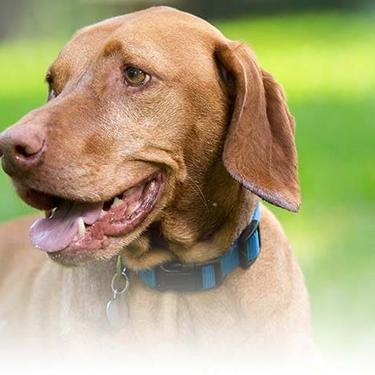
-
Find the right food for your pet
Take this quiz to see which food may be the best for your furry friend.
Find the right food for your pet
Take this quiz to see which food may be the best for your furry friend.
Featured products
 Adult 7+ Perfect Digestion Chicken, Whole Oats & Brown Rice Recipe Dog Food
Adult 7+ Perfect Digestion Chicken, Whole Oats & Brown Rice Recipe Dog FoodScience Diet's breakthrough nutrition supports ultimate digestive well-being & healthy microbiome for dogs age 7+
Shop Now Adult Healthy Cuisine Roasted Chicken, Carrots & Spinach Stew Dog Food
Adult Healthy Cuisine Roasted Chicken, Carrots & Spinach Stew Dog FoodDelicious roasted chicken paired with tender vegetables in a succulent stew
Shop Now Small & Mini Savory Stew with Chicken & Vegetables Dog Food
Small & Mini Savory Stew with Chicken & Vegetables Dog FoodA delicious complement to the nutrition of Science Diet Small & Mini 7+ dog food
Shop NowFeatured products
 Adult 7+ Senior Vitality Chicken & Vegetable Stew Cat Food
Adult 7+ Senior Vitality Chicken & Vegetable Stew Cat FoodImproves Everyday Ability to Get Up & Go
Shop Now Adult Savory Entrée Can Variety Pack Cat Food
Adult Savory Entrée Can Variety Pack Cat FoodPrecisely balanced nutrition with the delicious taste of savory minced chicken to help fuel the energy needs of cats during the prime of their life
Shop Now Adult 7+ Tender Tuna Dinner Cat Food
Adult 7+ Tender Tuna Dinner Cat FoodWith delicious chunks in a decadent gravy
Shop Now -
Dog
- Dog Tips & Articles
-
Health Category
- Weight
- Food & Environmental Sensitivities
- Urinary
- Digestive
- Joint
- Kidney
-
Life Stage
- Puppy Nutrition
- Adult Nutrition
- Senior Nutrition
Cat
- Cat Tips & Articles
-
Health Category
- Weight
- Skin & Food Sensitivities
- Urinary
- Digestive
- Kidney
-
Life Stage
- Kitten Nutrition
- Adult Nutrition
Featured articles
 Does My Pet Hate Me?
Does My Pet Hate Me?Learn tips for bonding with your pet if you've ever thought, 'My dog doesn't like me, or 'Why do I have a standoffish cat?'
Read More Do Dogs and Cats have Belly Buttons?
Do Dogs and Cats have Belly Buttons?Learn whether cats & dogs have belly buttons like humans, what the function is, and if there are any health concerns associated with it.
Read More Why Are Dogs and Cats So Cute?
Why Are Dogs and Cats So Cute?If waggy puppy dog tails and furry kitten yawns make you swoon, you're not alone. Why are cats so cute? And, dogs too! Let's find out!
Read More -


Seeing the World Through a Small Dog's Eyes
Try to get down on your dog’s level – literally – and take a good look around. Does the sofa loom high overhead and the slippery kitchen floor seem to extend for miles? This is your dog’s environment, so it’s important to see things from his perspective. Ask yourself a few key questions:
- Do things look a little scarier from down here? When people and household objects loom high overhead things can get a bit intimidating – think of a hoover that’s bigger than you are to get an idea of how your dog may feel.
- How far away from primary rest or play areas are essentials such as the water dish? A short sprint or marathon distance?
- If your dog is allowed on the furniture, how far do they have to jump? Would your dog benefit from a step that leads up to the couch or bed?
Small Breed Dogs: All Shapes & Sizes
Small, miniature and toy breeds are a celebration of the wide variety of the mini canine form:
Some are compact and sturdy, like Jack Russell Terriers, French Bulldogs or West Highland White Terriers.
Others, such as Italian Greyhounds, Prague Ratters and Chihuahuas, can be quite sensitive and delicate, naturally requiring gentle handling and careful treatment.
There are several breeds that have very distinct features, such as the iconic long-backed Dachshund, round-headed Japanese Chin, or the hairless Chinese Crested.
Whatever your dog’s size and shape, be sure to take their needs into account when considering things like the size and shape of the bed, food and water dishes, leash and collar or harness type, temperature requirements, and more.
Small Dog Syndrome
Being a small dog in a big world can be a challenge. However, small dogs very often get away with naughty or dangerous behaviours that would never be tolerated in their larger breed counterparts (also known as "small dog syndrome"). These little Napoleons often first use these behaviours as a kind of defence mechanism, but it can quickly turn to habit if not corrected early on. Owners should keep in mind that pulling on the leash, running away when called, snarling or biting are all equally bad behaviours whether coming from a 2kg Chihuahua or a 50kg Rottweiler. In both cases the right socialization and training can work wonders.
Learning and practicing appropriate behaviour in a wide variety of situations from an early age will help a dog of any size feel reassured and relaxed, helping prevent behaviours that are undesirable or downright dangerous. Seek help from a reputable trainer who knows your breed, or search for a local group obedience class. Additionally, books such as Decoding your Dog can help you learn about pet behavior, but don't hesitate to contact your veterinarian if you need help or the recommendation of a reputable trainer or puppy class in your area.


Tasty Tips
Food Requirements: Less Means More
Small breeds have different calorie requirements than large dogs. Since they have more surface area per kg than large dogs, they typically expend energy at a faster rate for normal body functions like keeping warm, etc. They also spend more energy on simply getting around. Walking down to the end of the block may cost your neighbour’s Labrador 100 steps, while your Lhasa Apso may need 400 to cover the same distance.
Small dogs may need more calories per kg daily than large dogs do, but they should still be safeguarded against gaining too much excess weight. Obesity is just as dangerous for small dogs as it is for big dogs.
Special Considerations for Puppies
These tiny tots need more calories per ounce of bodyweight, and can’t stockpile energy reserves in the way larger breed pups can, so they require more frequent calorie-dense meals.
Mini breed puppies should be fed small meals frequently throughout the day to compensate for their small stomach capacity and rapacious need for energy. Read food labels for optimal feeding amounts and ask your vet for advice tailored for your individual little darling’,s needs.
As with any breed, small pups should be protected but not babied. Although it may take a stout heart to look a fluffy little Cavalier King Charles Spaniel puppy in it’s big brown eyes and say “No!”, it must be done. Early training for small breed dogs sets the stage for a more relaxed, dependable and better-behaved canine companion later on.
Living Long & Well
Small dogs often live significantly longer than their large and giant breed counterparts. Maltese, Chihuahuas, Yorkshire Terriers and Miniature Dachshunds are all well known to live to be over 12 years old. The median lifespan for Miniature Poodles and Border Terriers is nearly 14 years of age, with the maximums reported to be nearly 20 years of age – venerable, to be sure!
With all of this long life very often combined with city dwelling, small dogs need extra protection to maintain good health well into their golden years. In between regular trips to the vet, small dogs can really benefit from extra antioxidants to help their bodies combat the effects of ageing and urban life.
Feeding the Right Food
The smaller kibble size in our dog foods for small dogs has been designed specially for little pups, making it easy for tiny canines of all shapes to pick up and chew the kibbles.
Giving a complete dog food with a superior antioxidant bundle, Omega-3&6 fatty acids, a small kibble size and nutrition tailored to suit your dog’s lifestage, combined with a tempting taste, will ensure that your dog gets exactly what he needs for a long and happy life. A wide range of Science Diet™ and Prescription Diet™ foods are available to support better health in small dogs.


One of our staff authors prepared this article for you
Related products

A delicious complement to the nutrition of Science Diet Small & Mini 7+ dog food

Science Diet's breakthrough nutrition supports ultimate digestive well-being & healthy microbiome for dogs age 7+

Delicious braised beef paired with tender vegetables in a succulent stew

Delicious roasted chicken paired with tender vegetables in a succulent stew
Related articles

Large and giant breed puppies have different nutritional needs than other dogs. Learn how to provide the special care they need to grow up big and strong.

Learn about choosing the right food for your mature or older dog, ensuring he receives the correct balance of nutrition.

Hill's Science Diet Small & Toy Breed dog foods are designed to meet the nutritional needs for your small dog at every life stage. Learn more here.

Your dog's coat and skin are a big part of your dog's overall health. Ensure you keep your dog's coat healthy, by following these simple tips.

Put your dog on a diet without them knowing
Our low calorie formula helps you control your dog's weight. It's packed with high-quality protein for building lean muscles, and made with purposeful ingredients for a flavorful, nutritious meal. Clinically proven antioxidants, Vitamin C+E, help promote a healthy immune system.
Put your dog on a diet without them knowing
Our low calorie formula helps you control your dog's weight. It's packed with high-quality protein for building lean muscles, and made with purposeful ingredients for a flavorful, nutritious meal. Clinically proven antioxidants, Vitamin C+E, help promote a healthy immune system.

